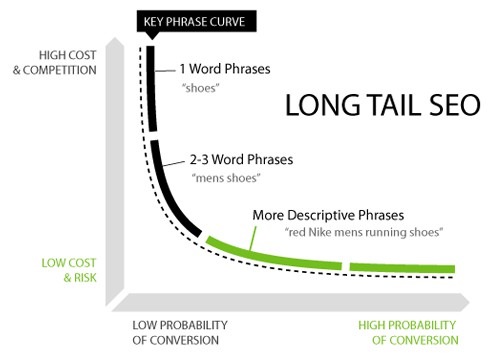- Have any questions?
- USA: +1 757 414 7629
- India: +91-9088179487 |
- Email: support@zebratechies.com
How will you do Keyword Research for E-Commerce Business?
Did you plan anything solid about marketing of your online business? It is not entirely similar to marketing of your business offline. In fact, since attracting strangers to your store and entertaining them so they stick around your store and visit its various pages, converting those visitors into leads, to closing them as customers- all these jobs are not that easy! The web is a crowded landscape. So is the competition on the web. You have to do and deliver if want to do a successful business.
Search engine optimization plays a key role here. Studies show that consumers start researching after they plan to purchase a new product or service and 44% of the time that research process starts with a search.
For an ecommerce site, it is optimally necessary to rank prominently in those searches and which is why the need to embrace SEO. In this consideration, keyword research is critical.
With that in mind, here's a quick “how-to-do” keyword research for ecommerce businesses.
First off, you’ve to understand keywords. It is a known fact that everyone nowadays understand (at least to some extent) what search terms are. These are the terms that describe a given web page in the most direct, straightforward fashion. When conducting an online search, searchers will enter in keywords to indicate what they are interested in and the search engine itself will consider websites’ keywords to match those searches and deliver the best results.
Simply put, the more effectively an ecommerce site uses the right set of keywords on its different pages, the better. It will lead directly to a greater number of site visitors and potential customers.
Making selection of the right set of keywords and using them effectively are easier said than done, which is why online retailers need to embrace keyword research.
Variety of keywords: Before starting doing keyword research, it is vital to know that there are two different kinds of keywords you will want to include on your site page: Short-tail and Long-tail keywords.
Difference between Short Tail and Long Tail Keywords:
Short-tail keywords are very broad terms like “medical supplies.” Ranking for such short-tail keywords is more difficult and challenging than long-tail, because they are applicable to more businesses. However, the upside of them is ranking well for a short-tail keyword can drive a tremendous volume of traffic to your site.
Long-tail are more specific terms and preferable. Take for example of “affordable medical supply store in Atlanta.” Ranking well for these terms is easier, but they will drive less traffic to your site. The upside is the traffic is often more qualified and more likely to make a purchase because they have already known the specific type of product they want.
Ideally, a site can rank for both types of keywords, but starting with long-tail keywords will deliver a positive ROI faster than an approach focused on short-tail keywords.
Quick Tips to do Keyword Research:
Keyword research is vital to prepare the best keyword set and do SEO strategy. A quality keyword research method can figure out which keywords to focus on, both across your site and on specific pages.
Use keyword research tools to dig out keyphrases that your buyers would likely be using. Make sure to think through both short-tail and long-tail keywords your customers might use.
Customer reviews are also an effective SEO research tool. So, encourage your customers to give their feedbacks on your site, read through them to discover if you can find some keyword opportunities there also.
Use Google Keyword Planner. However, there are many more similar keyword planning tools. They all let you know how many times a given keyword or phrase is being search on a monthly basis. You will also come to know how much competition there is for a particular keyword.
Google Keyword Planners provides a number of features which allow you to modify settings and gain a more targeted, accurate understanding of how well or poorly a given search term performs. This will also let you know of the keywords’ search frequency you brainstormed and how many other ecommerce site are also featuring those terms.
Prepare keyword list that can strike a balance between a high search volume and a low competition score. A good strategy must deliver positively and improve your business’ SEO.
Don’t ignore keyword research and count on guesswork. It will only jeopardize prospects of your business. Develop the best SEO strategy through it for your business online to run successfully. If you want us develop expert keyword research, you may contact us here.

By Professional qualification a Computer Engineer, By Profession an Online Marketing Strategist and Web Application Development Expert, By Industry position working as a CEO at Zebra Techies Solution!
WARNING! ONLINE JOB FRAUD ALERT!
We Do Not Offer Work From Home, Part-time, Or Online Jobs. Job Seekers, Beware Of Job Scam Calls And Whatsapp Messages Or Tiktok Ads! We Have Not Authorized Any Agency To Recruit On Our Behalf. Stay Alert.


